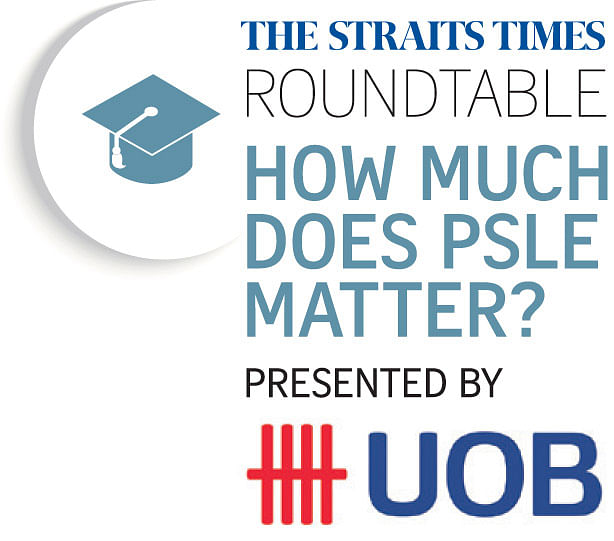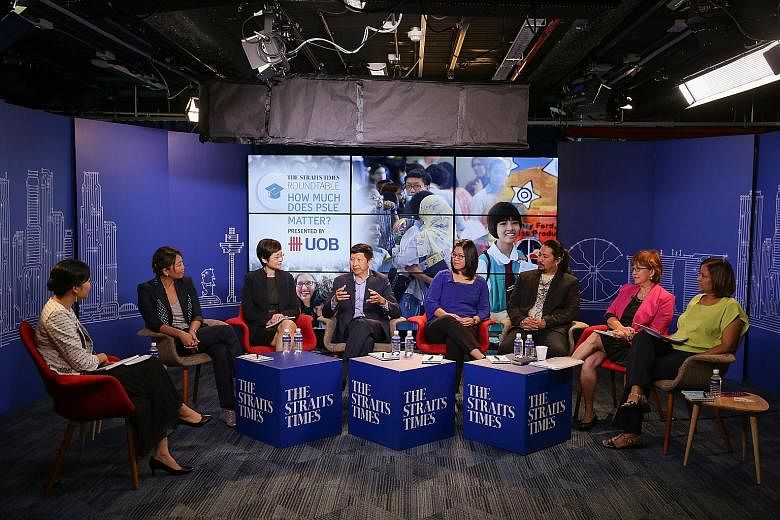Is the Primary School Leaving Examination (PSLE) a relevant measure of a child's abilities?
Is there too much focus on results, and too little on helping children discover and explore their interests?
These issues were scrutinised by seven panellists on a special roundtable, titled "How much does PSLE matter?"
The panel included Ms Denise Phua, who heads the government parliamentary committee for education; Ms Genevieve Chye, divisional director of the Ministry of Education's (MOE) engagement and research division; and criminal lawyer Josephus Tan.
Several of the panellists acknowledged the merits of the PSLE, taken by Primary 6 pupils, which instils values like discipline and hard work.

But The Straits Times' senior education correspondent Sandra Davie said late bloomers are disadvantaged by the PSLE. Having such an exam also "skews the priorities in education" as teachers try to gear pupils to score as high as they can, instead of helping them meet the broader objectives of education, she added.
Ms Phua said MOE has made efforts to reduce the over-emphasis on academic results. But she added that while the PSLE still "primarily measures the academic intelligence of students", it is only one aspect of a person's ability.
Many people who do not have good PSLE scores go on to do well in university, she noted.
Ms Chye added that the PSLE is meant to be a checkpoint for pupils' strengths and help them figure out their next step.
There are also other pathways beyond primary school today for children, said the former principal of Montfort Junior School.
"You want to give them the time and space to develop at their own pace and not rush them just because there is this particular checkpoint."
Parents, too, need to adjust their expectations. "As parents we have that responsibility to try and understand how we should help our children learn rather than how we should help our children score," said UOB executive director and head of group retail marketing Wendy Ong, who has three sons.
The school environment and peer pressure can add to the stress on children too. Former teacher and mother of five Tracey Or said she chose to homeschool her two children partly because of the "intense pressure" her daughter, now 10, felt in school.
Mrs Or said her daughter asked for tuition in Primary 3 - even though she was not doing badly - because her schoolmates would compare how many tuition classes they had.
Mrs Or, who blogs about education, said: "And that was when it really didn't make sense any more."
Dr Henry Toi, managing director of education firm Nurture Craft, said: "Perhaps our job today is to help our children discover what they're good at... and give them that avenue and the resources to go in that direction."
This year's batch of 38,808 PSLE pupils who received their results last week made history by producing Singapore's best showing at the national exam since it was introduced in 1960. About 98.4 per cent of them did well enough to progress to secondary school.
Organised by The Straits Times and presented by UOB, the roundtable was moderated by The Straits Times' managing editor Fiona Chan.


